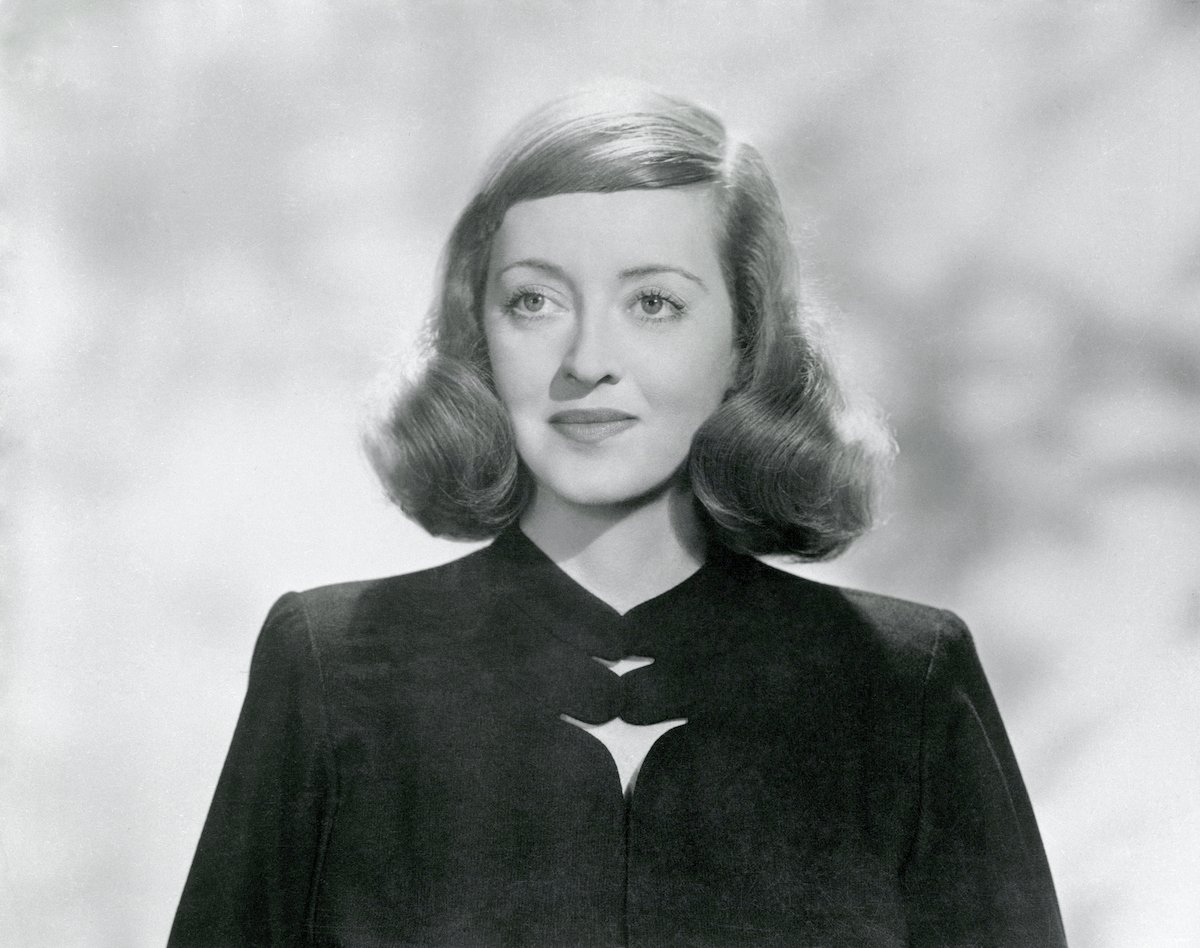Bette Davis Was Suspended by Warner Brothers For Refusing Roles
Bette Davis rose to stardom as an actor during the early decades of Hollywood. She dedicated her life to entertaining fans through the silver screen. In 1989, she died at the age of 81 due to breast cancer.

While Davis obtained dozens of acting credits, she also dismissed several roles. Nowadays, the action does not seem like an important deal. However, Warner Brothers punished Davis for her rejections back in the day.
Actors could not dismiss roles in Old Hollywood
In current times, fans regularly learn about famous actors who turned down iconic roles. The celebrity might not have liked a script or had scheduling conflicts. While fans may be somewhat disappointed, actors are less likely to hurt their careers because of a rejection.
People cannot say the same for the stars who thrived during classical Hollywood. According to Harper’s Bazaar, a person could not refuse a part in the early days of the industry. If someone turned down a role, they most likely faced consequences that impacted their career.
As a result, fans did not hear news of rejection from an actor all that often. The main reason was that Hollywood operated on a studio system. The system allowed studios to have complete control over production, distribution, and exhibition.
Actors would sign a contract with one studio and could not work for other companies. The exception is if the executives loaned them out for other projects. The studio system ended eventually, and stars gained more freedom over what productions to join.
Bette Davis received a suspension for her refusals
Even if a studio knew a film would do poorly, they could make an actor become a cast member. Still, the occasional dismissal did happen now and then. Davis was one celebrity who repeatedly did so during her time with Warner Brothers.
According to Biography, Davis signed on as an actor for Warner Brothers in the early 1930s. However, she developed an uneasy relationship with the studio after several years. The primary reason was that Davis refused to join productions like Mildred Pierce.
As a result, Warner Brothers suspended Davis as a punishment. However, the actor later took the studio to court for the right to reject films. She believed that she should not star in a movie she had no desire to be in. Afterward, Davis went to England for a while before returning to Hollywood with a higher salary.
Davis also received an improved selection of roles and continued to garner fame. She often portrayed strong-willed characters who went against society’s rules. It would seem as though she carried the traits into real life.
Bette Davis continued to act despite the suspension
Davis began her career in theater, and she landed a minor part in a film in 1931. She gained recognition for her talents in the years to follow. The actor secured work for 14 movies within three years. Many of the women she portrayed would appear unlikeable to the audience.
Some of Davis’ notable works include Dangerous, The Petrified Forest, and Jezebel. One of her unforgettable films was All About Eve, and she starred as Margo Channing. As Margo, she gave the iconic line, “Fasten your seatbelts: it’s going to be a bumpy night.”
Davis won her first Academy Award in 1935 and earned a second Oscar in 1938. In 1977, she got the American Film Institute Life Achievement Award. She also became an author of two autobiographies later in her career.
People knew Davis for her distinguishing eyes, and Kim Carnes once wrote a song about them. Despite the suspension, she continued to be successful and became a household name.


